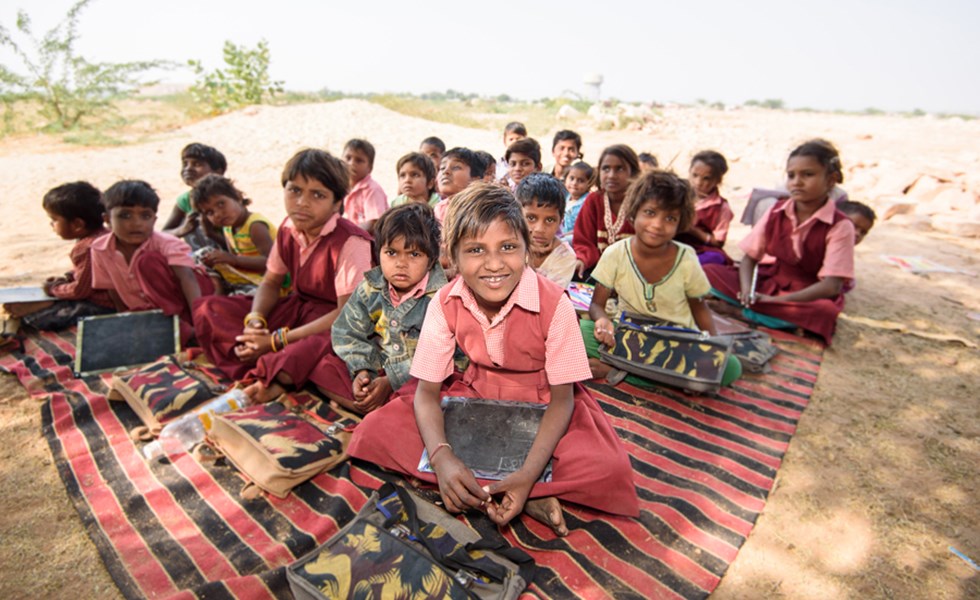Combating child labour in quarries, India
In India, local trade unions take children who work in quarries and brick factories out of their work situation and enable them to go to school. At the same time, the unions negotiate for better working conditions and wages for the parents. Illiterate parents are also given the opportunity to educate and organise themselves.

Context
There are about 50,000 quarries/stone factories in India, each employing around 150 people. Working 10 to 12 hours a day, a family of four earns about €15 a week. To give the working children in this industry a chance for a future, the international federation for construction and wood unions, Building and Wood Workers International (BWI) developed together with local trade unions a project to get the children out of work and into school.
The project
The BWI started this project at the end of the 1990s, and Mondiaal FNV has supported it from the beginning. The BWI coordinates the project in the Indian brick industry with local trade unions in a number of Indian states, such as Uttar Pradesh, Rajasthan, and the districts of Tantpur and Jodhpur.
Every school project started with an organiser. On behalf of the union, the organiser urged the parents to send their children to school and informed them what else the union can do for them.
Next, they looked for a building that is suitable as a school, or a school was built. These are 'bridge schools' where the children were prepared for education in government schools. The unions also provide literacy training for the mothers and actively recruit members so that they stand stronger in improving the parents' working conditions.
Monitoring & negotiating better working conditions for parents
To make the education for the children sustainable, recently most of the schools were transferred to government institutions. The BWI affiliates now ensure in other ways that child labour in the brick kilns and quarries does not increase again: by monitoring through the union, parent committees and self-help groups, and by negotiating better working conditions so that the children do not have to work.
Impact
Through the awareness campaigns, demonstrations, meetings, child labour free villages and factories, more than 10,000 former child labourers have been enrolled in education. The level of organisation in this informal sector has risen and the image of trade unions has greatly improved.
Expanded
Since a few years the project has been extended to Nepal and Bangladesh.
Photo: Roderick Polak